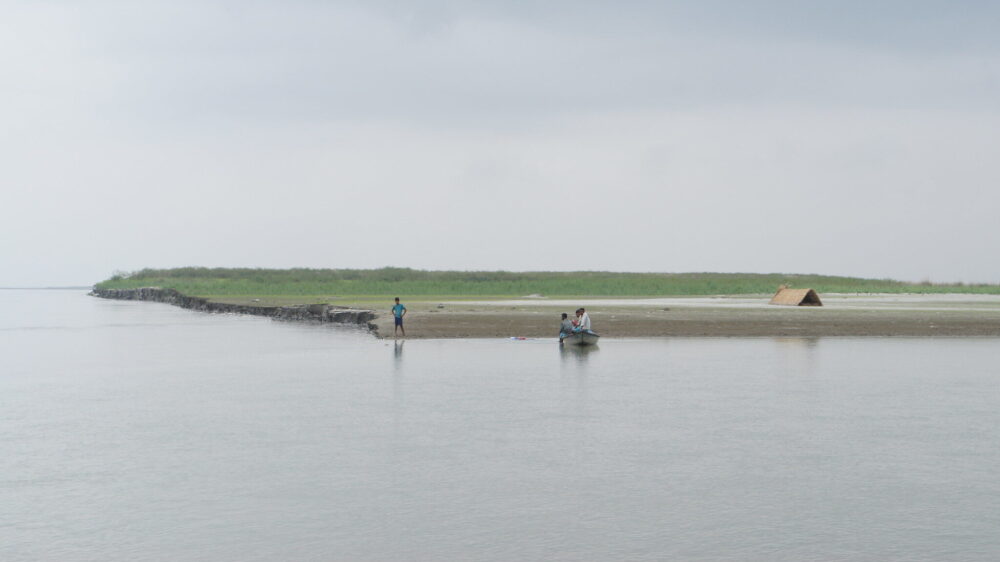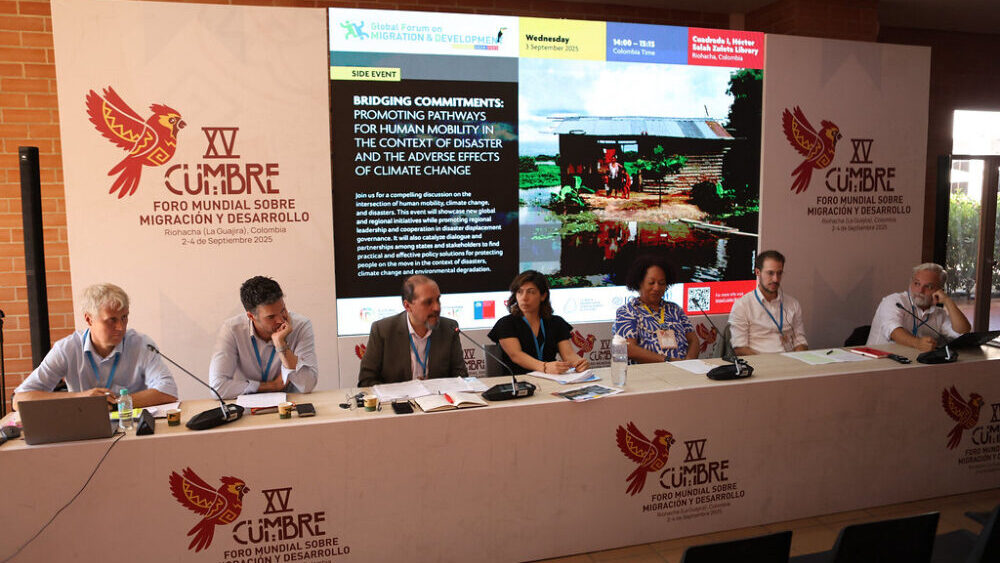Advisory Committee Workshop, 13 – 14 October 2016, Geneva

This event allowed Advisory Committee Members to provide expert input and strategic advice to the Chair and the Steering Group Members in supporting the implementation of activities in the Platform Workplan.
1. Organisers and Participation
The workshop was called by the Government of Germany, Chair of the Platform and organised by the Coordination Unit of the Platform.
Participants, who also became Advisory Committee members, represented a diverse group of stakeholders with expertise in different fields of relevance to disaster displacement such as humanitarian assistance and protection, human rights, migration management, refugee protection, disaster risk reduction, climate change mitigation and adaption, and development. The Committee includes individuals and representatives of international and regional organisations, research institutions, academia, private sector, non-governmental organisations (NGOs) and other civil society stakeholders that have an interest to promote and implement the Protection Agenda and are committed, individually or collectively, to address protection challenges related to disaster displacement.
Steering Group members, the Chair of the Platform and the Envoy were also present during an interactive session with the Advisory Committee members.
2. Objectives of Workshop
This Workshop aimed to take stock of progress in implementing the Protection Agenda, share information on effective practices and lessons learned, present new research and new initiatives, assess gaps and challenges, and discuss and promote opportunities for further cooperation, coordination and action
One important objective of the Workshop was to discuss and review the Platform’s Strategic Framework 2016-2019 and the draft Workplan by developing ideas for activities and project proposals in support of the implementation of the Workplan. Another objective was to constitute the new Advisory Committee, which is a successor to the Consultative Committee under the Nansen Initiative, during the Workshop. The Workshop was also an opportunity for the Chair, Envoy to the Chair, Steering Group Members and Advisory Committee Members to interact and exchange on the Strategic Priorities and the Workplan of the Platform under the current chairmanship.
3. The Nansen Initiative Protection Agenda
The Nansen Initiative was a state-led, bottom-up consultative process intended to build consensus on key principles and elements to address the protection and assistance needs of persons displaced across borders in the context of disasters, including the adverse effects of climate change. A key outcome of this process is the Agenda for the Protection of Cross-Border Displaced Persons in the Context of Disasters and Climate Change (Protection Agenda), which has been endorsed by 109 States in October 2015. It presents a comprehensive approach on how to both prevent and address disaster displacement (internal and cross-border). It also highlights the need for policy integration and enhanced coordination across humanitarian, disaster risk reduction, climate change adaptation and development action areas. The Protection Agenda consolidates a broad set of effective practices and policy options that can be used by States and others to reduce and manage disaster displacement, and to better protect and assist disaster displaced persons.
4. Summary of Workshop Conclusions for each Strategic Priority
- #1: Knowledge and data gaps on disaster displacement persist, especially on cross-border movements, human mobility in slow-onset disaster contexts, disaggregated data and future displacement risks. Researchers need to work closer together and coordinate efforts to further develop methodologies, standards, concepts and tools.
- #2: A lot of progress has been made in recent years with the inclusion of human mobility challenges and displacement aspects into the work of the UNFCCC and the Sendai Framework for Disaster Risk Reduction. More strides need to be undertaken to ensure that climate change, disaster risk reduction (DRR), development and other policy areas are reflected in global and regional migration and refugee policies. One upcoming opportunity at the global level will be the elaboration of the Global Compacts on Refugees and Migrants.
- #3: At the regional level, especially in the Americas and the Pacific, great examples of effective practices exist on both humanitarian protection measures and the reduction of disaster displacement risks. There is large scope for engagement to scale up these practices, engage in training, capacity building and simulation exercises and draw lessons for their replication in other regions, such as Africa and Asia, adapted to specific contexts.
- #4: There are a number of opportunities to build on existing legal and policy frameworks at regional, sub-regional and national levels. These include measures to protect cross-border and internally displaced persons (IDPs) in the context of disasters and climate change, but also integrated approaches among DRR and Climate Change actors.
4. Report of the Workshop
Please download the Report for the right margin.
Useful Links
 Loading...
Loading...

Download the agenda of the Workshop
 Loading...
Loading...
Read the Advisory Committee Terms of Reference
 Loading...
Loading...
Download the Platform’s Strategic Framework
 Loading...
Loading...
Download the Platform’s Zero Draft Workplan
 Loading...
Loading...
Download the Workshop Information Note
